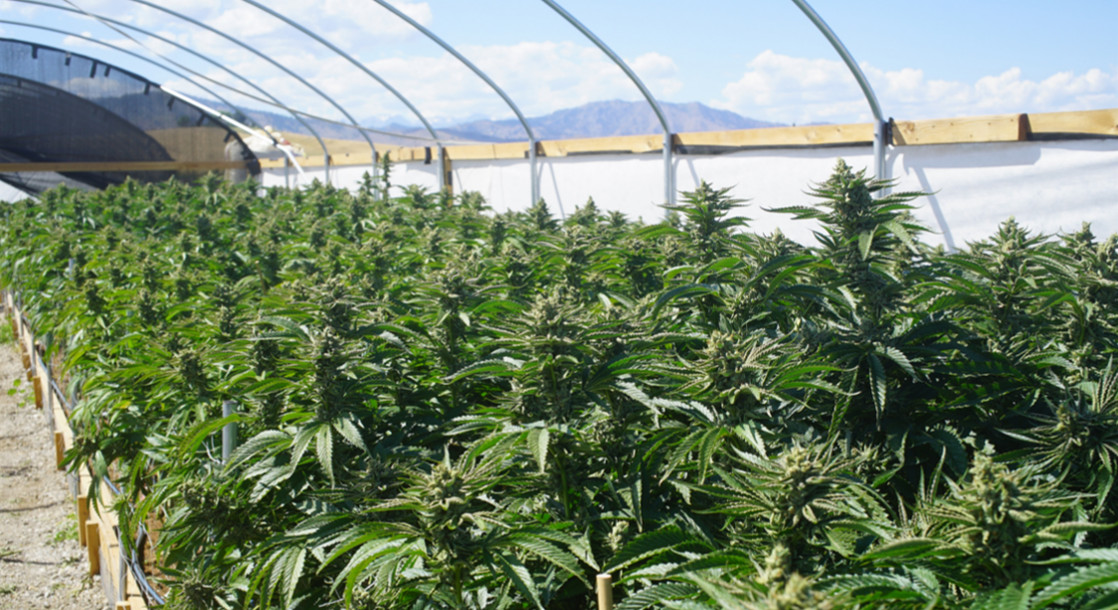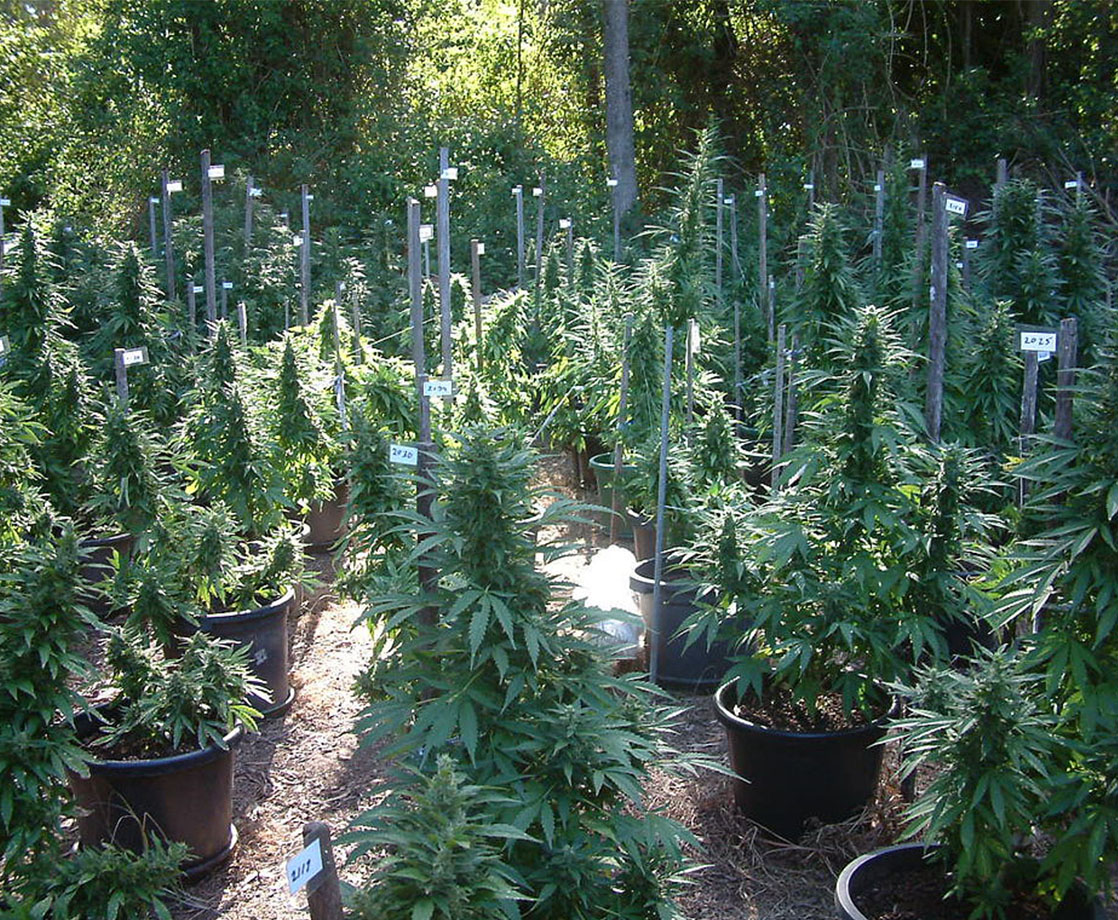Photo via SEASTOCK
Last week, the California Growers Association (CGA), a trade group representing marijuana farmers, filed suit in Sacramento County Superior Court against the California Department of Food and Agriculture (CDFA) over a loophole in cannabis cultivation regulations.
The case concerns the scale of just how much cannabis a a licensed farmer can grow. When California's legalization initiative Proposition 64 was on the November 2016 ballot, the language of the bill promised that "the non-medical marijuana industry in California will be built around small and medium sized businesses." To honor this goal, the bill included a provision banning licenses for the largest scale cultivators for the first five years of the program, both to counteract monopoly interests while giving smaller farmers a headstart over the competition to transition into the legal market.
Now, however, CGA argues that the newest set of regulations adopted by the CDFA create a loophole, contradicting the spirit of the protective arrangement outlined in the original bill. While those largest scale cultivation licenses are still banned, the regulations nonetheless allow for a single corporation to collect an unlimited number of smaller scale cultivation licenses, arguably enabling the same kind of economic effect that the five-year ban was meant to prevent.
Type 5 licenses — the state’s permits for the largest scale cultivation — are still not available. Type 3 licenses, allowing up to an acre of cannabis cultivation, are limited to one per farm, but Type 2 licenses, for up to 10,000 square feet (about a quarter acre), are unlimited. "A colleague in Colorado said it's like setting a daily [purchase] limit at an ounce, but then letting people buy unlimited eighths; it doesn't make sense," says Hezekiah Allen, executive director of CGA. "This isn't about preventing big grows; it's about giving the diversity of existing businesses the time they need to transition. Most of California is still suffering under the shadows of prohibition because their local cities and counties won't issue them permits."
Thousands of growers throughout Golden State municipalities — including Sonoma, Nevada County, Calaveras, and more — have been shut out of California's new market, unable to get local licensing (and therefore state licensing) on account of bans or limits on commercial cultivation. "This is about making sure California's leading growers have time to overcome an historic injustice that we're in the process of reforming," Allen adds. "Folks are literally losing their family farms because local permits can't be issued fast enough."
Several members of CGA do want to scale up eventually, but they first need time to build their brands before competing with larger, better capitalized players. CGA's farmers also recognize that large scale farms rely on greater market demand, Allen says. "Until we have access to a larger market, it will be dicey to scale up our supply in a state that already has oversupply," he says. "It's a recipe for catastrophe." Last year, California produced at least 13.5 million pounds of cannabis, but only consumed 2.5 million — that big question mark about where the rest of the weed went leads straight to the black market and out of state.
While nearly 95 percent of CGA supports the organization's position in the lawsuit, according to Allen, not everyone within the cannabis community agrees with its premise.
"The CGA lawsuit is based on the idea that there will be an oversupply of cannabis in California, but we're seeing the exact opposite," says Steve DeAngelo, executive director of Oakland-based dispensary Harborside Health Center. Some estimate that there are more than 50,000 growers in California, he adds, but as of January 31, the CDFA had only issued 840 temporary cultivation licenses
With the price of legal cannabis already increasing due to high taxes, economically challenged consumers — including military veterans, senior citizens, and full-time family caregivers — are having difficulties affording the new costs, DeAngelo says. "As a result they're going to the underground market and are exposed to all the dangers that we're trying to solve with legalization." He estimates that nearly 50 percent of those in the medical marijuana market have dropped out of the legal system and instead are buying from unlicensed delivery services.
"There's room [in the industry] for small artisan growers. They'll produce great, artisan cannabis at a high cost, but I don't think it's fair to say to consumers who can't afford that grade of cannabis that that's their only choice," DeAngelo says.
This isn't only about big farmer versus small farmer, he continues, but about California versus the rest of the country. "The reason we make so much money off cannabis is that we grow about 10 times as much as we can consume and ship it out of state illegally, but once we have a legal interstate market, we should be able to do that legally because we have the ideal microclimate for growing cannabis here and the best talent pool," he says. But what's happening now is that other states like Nevada, Arizona, or Colorado are allowing for much larger cultivation facilities, or what DeAngelo calls "efficient scale cultivation." With the ability to sell cannabis at a cheaper price, these other states could claim the national market, he worries. "And that would really mean the end of our livelihood to an awful lot of California cannabis growers."
MERRY JANE reached out to the California Department of Food and Agriculture regarding the lawsuit; a spokesperson declined to comment.
For the moment, those sympathetic to CGA's cause seem more concerned with intrastate, rather than interstate, competition. "We're already seeing a race to the bottom in terms of the pricing of cannabis, and we're aware that mega-grows can displace farmers by providing more product at a lower price," says Michael Katz, co-founder of the Emerald Exchange cannabis farmers market.
Many of these growers who stand to gain from the lawsuit are family businesses trying to sustain their livelihood, he explains. "They have been sustained for decades based on certain existing market trends and principles that have been completely upended," Katz says. "This five-year period is not just about how much cannabis you can grow, but also about how we can turn the tide at the local levels to enable small farmers to continue operating and get licensure so they can make this transition. We respect the fact that there was an existing cannabis industry before January 1, 2018, and we pay homage to those people, without whom there wouldn't be a cannabis industry today."











